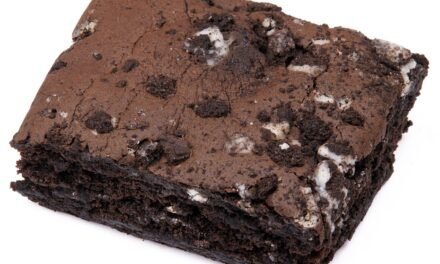Key TakeawaysA examine means that heavy drinkers have the next dementia danger than non-drinkers.The researchers outlined heavy consuming as having eight or extra drinks per week.Heavy drinkers have been 133% extra prone to have mind lesions than non-drinkers.
Many individuals get pleasure from having an occasional cocktail, beer or glass of wine—and light-weight consuming isn’t prone to take a serious toll in your well being. However common and heavy consuming are beginning to ring alarm bells for researchers. Again in 2020, the World Well being Group launched a press release recommending that individuals drink much less alcohol. And in January 2025, the U.S. Surgeon Basic issued a urgent warning rating alcohol because the third main reason behind most cancers, proper after tobacco and weight problems.
There are just a few causes behind these warnings. For starters, alcohol contributes to 2.6 million deaths worldwide every year, and total, alcohol is liable for 4.7% of the worldwide burden of illness. Within the U.S., about 178,000 deaths may be attributed to extreme alcohol use yearly. Along with these deaths, 32 individuals within the U.S. are killed on daily basis in car crashes involving a driver who’s impaired by alcohol—that’s one demise each 45 minutes.
Concerning illness danger, analysis is turning into clearer—even average consuming can improve your danger of most cancers, coronary heart illness, despair, anxiousness, liver illness and extra. Ingesting has additionally been linked to cognitive decline and ailments of the mind. And that is what researchers in Brazil and on the College of California, San Francisco, wished to take a better have a look at. They revealed their findings within the American Academy of Neurology’s publication, Neurology. Let’s break down what they discovered.
How Was This Research Performed?
This examine is completely different from typical research in that a lot of the data was gathered from autopsies and subsequent of kin who had a minimum of weekly contact with the deceased for at least six months previous demise. There have been 1,781 members with a median age of 75 at demise. About half of the members have been ladies, and 64% have been white, 34% Black and a couple of% Asian.
Demographic data was collected from the Brazilian Institute of Geography and Statistics and official authorities paperwork. Alcohol consumption associated to the earlier three months earlier than the demise of the deceased was gathered from detailed questionnaires administered to the deceased’s subsequent of kin. The medical historical past of the deceased was additionally gathered from subsequent of kin by a semistructured interview whereas they waited for the post-mortem to be carried out.
Included within the next-of-kin interview was a questionnaire referred to as the Medical Dementia Ranking (CDR) scale, which evaluates six domains to detect the presence and severity of dementia: reminiscence, orientation, judgment and problem-solving, group affairs, dwelling and hobbies, and private care. Every area is scored on a scale of 0 to three, reflecting the diploma of impairment, after which summed to compute the CDR Sum of Boxed (CDR-SOB). The CDR-SOB ranges from 0 to 18, with increased scores indicating poorer cognitive skills.
For this examine, researchers outlined one dose of alcohol as being equal to 14 grams of alcohol, or 350 mL of beer, 150 mL of wine or 45 mL of distilled spirits. Members have been then categorized as:
“by no means” for individuals who didn’t eat alcohol in any respect “average” for these consuming as much as 7 doses per week “heavy” for these consuming 8 or extra doses per week “former heavy” for individuals who beforehand engaged in heavy consuming however had stopped their consumption as much as 3 months earlier than demise
After the brains have been faraway from the skulls, they have been weighed. In earlier research, smaller brains have been related with mind issues, together with dementia, which is why this measurement was included. The brains have been additionally analyzed for varied indicators of illness, together with occluded mind vessels and particular lesions related to dementia, together with Alzheimer’s illness.
What Did This Research Present?
After adjusting for demographics that may have an effect on mind well being, together with smoking standing, age at demise and bodily exercise, researchers discovered that, in comparison with those that by no means drank:
Heavy drinkers had 133% increased odds of getting vascular mind lesions.Former heavy drinkers had 89% increased odds and average drinkers had 60% increased odds of getting vascular mind lesions.Heavy drinkers had 41% increased odds and former heavy drinkers 31% increased odds of creating tau tangles, a biomarker related to Alzheimer’s illness.Heavy drinkers died a median of 13 years earlier.Former heavy consuming was related to a decrease mind mass ratio and worse cognitive skills.
Curiously, no hyperlink was discovered between average or heavy consuming and mind mass ratio or cognitive skills. Researchers be aware that this can be as a consequence of heavy drinkers dying 13 years earlier. In different phrases, they could have died earlier than the indicators of dementia confirmed up.
There are a number of limitations to this examine. For starters, it’s not a longitudinal (long-term) examine and didn’t have a look at members earlier than demise. As a substitute, researchers relied on subsequent of kin’s notion of their family members’ alcohol consumption and cognitive skills. These autopsies additionally solely included individuals with unknown causes of demise, not these with traumatic causes of demise, similar to auto accidents. Researchers be aware that as a consequence of this, the pattern of heavy drinkers could be underrepresented to replicate the well being dangers related to extreme alcohol consumption.
Lastly, researchers didn’t consider the presence of vitamin deficiencies, which many heavy drinkers expertise and which may have an effect on mind well being. For instance, a thiamine deficiency influences particular areas of the mind associated to cognitive decline.
How Does This Apply to Actual Life?
The proof is stacking up towards alcohol having extra destructive well being penalties than constructive, particularly for heavy drinkers. Whereas it’s widespread to have an occasional drink at dinner or seize a beer to meet up with mates, when you’re consuming a couple of drink per evening, it might be time to chop again.
Alcohol use is a person resolution. If you happen to do drink, take an sincere have a look at how a lot, how usually and why. Typically, we drink as a result of everybody else is. However when you don’t just like the style of it or the way it makes you are feeling—otherwise you’re noticing sneaky negative effects—these could also be indicators that it’s time to offer it up. It’s vital to evaluate why you’re consuming and the way it’s affecting your life—together with financially and along with your relationships.
If you happen to really feel your physique has develop into depending on alcohol and also you’re able to give up, it’s crucial to get assist. That would imply in search of the assist of family and friends, talking along with your physician or in search of out a close-by assist group. If you happen to’re nervous about experiencing withdrawal, getting in contact along with your physician is an effective first step.
The Backside Line
This examine means that heavy drinkers and former heavy drinkers have a lot increased odds of mind harm associated to mind ailments in comparison with those that don’t drink. Whereas analysis is combined relating to the consequences of alcohol on well being, it’s leaning an increasing number of towards alcohol creating destructive well being penalties extra usually than constructive ones.
Alcohol isn’t the one factor that impacts mind well being, although. Weight loss plan, bodily exercise, stress, sleep and socialization additionally affect how wholesome your mind is. The MIND food plan is loaded with brain-healthy meals. EatingWell’s registered dietitians put collectively a 30-day MIND food plan meal plan to make it straightforward to get began. Mix wholesome consuming with common train, good sleep and time with mates or household, and also you’ll be supporting your cognitive well being one step at a time.





